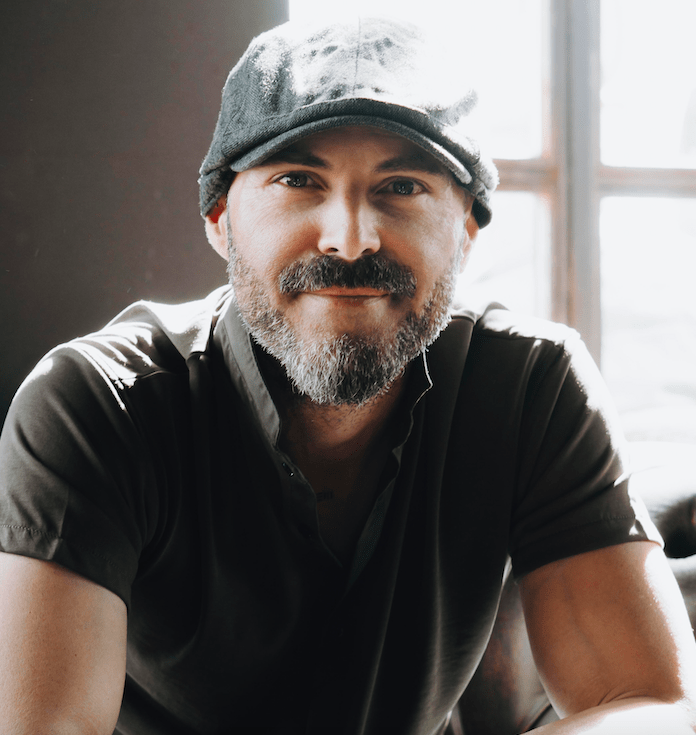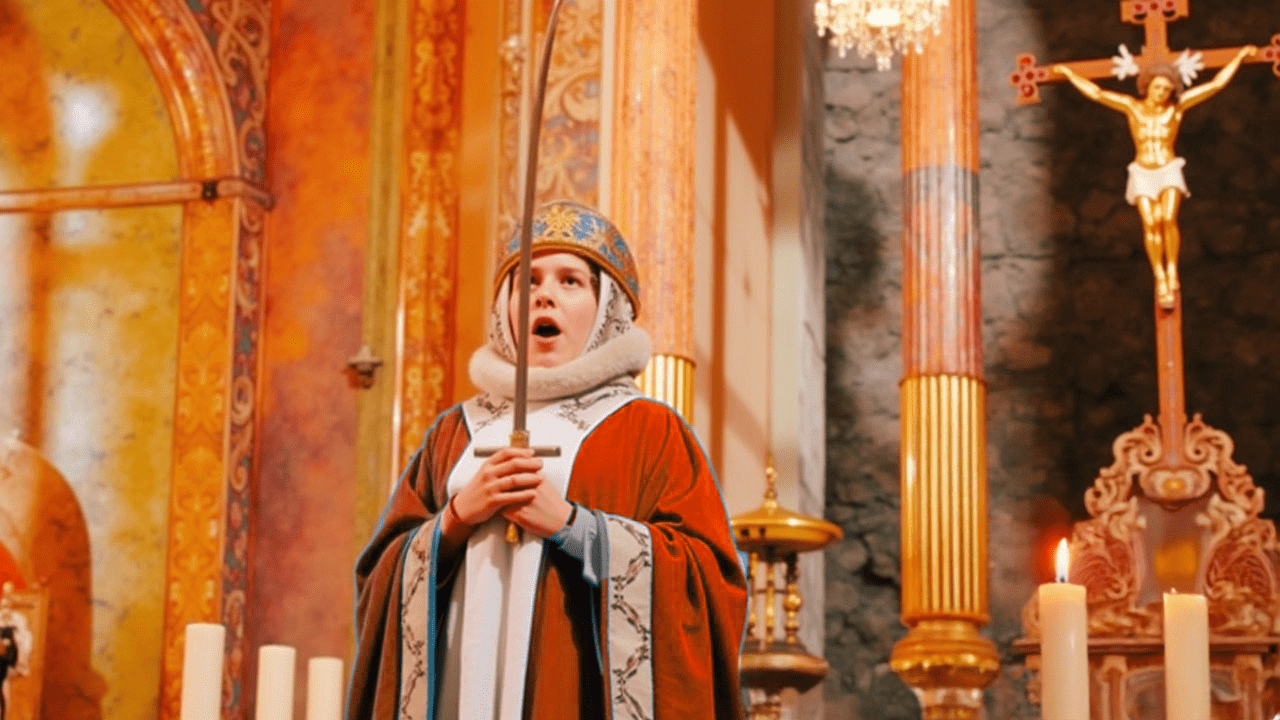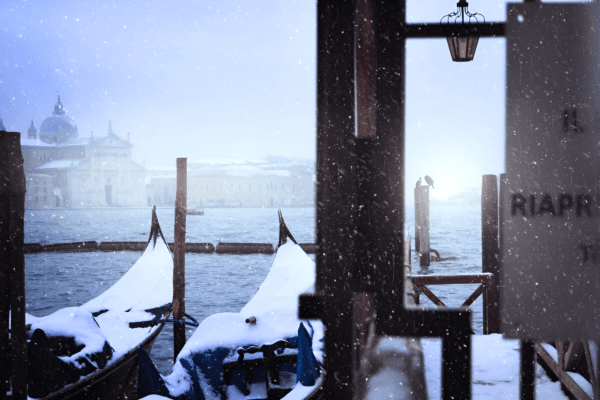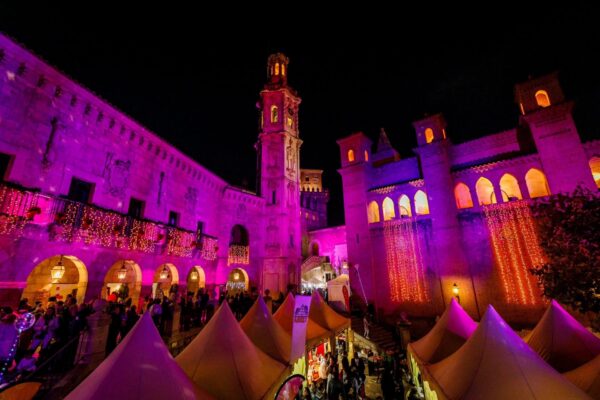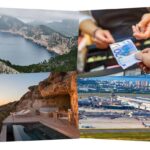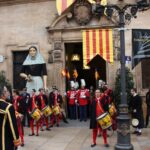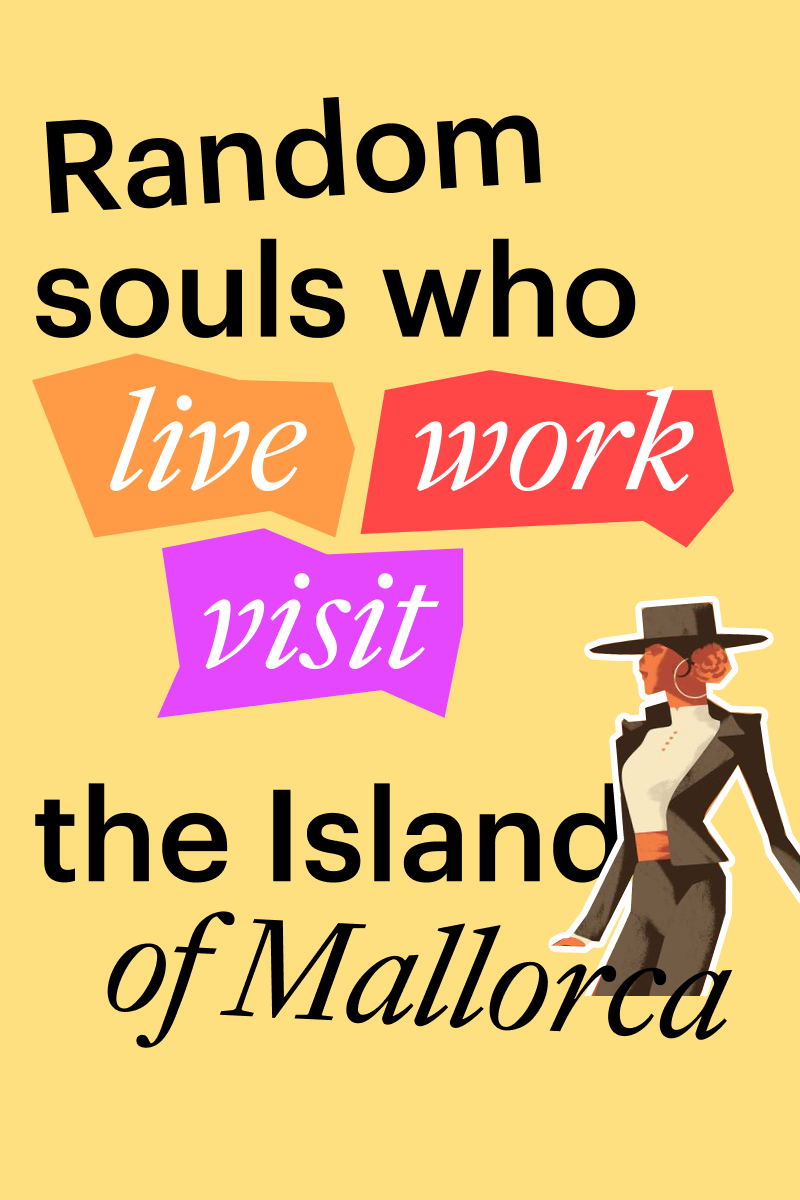Emland G. Marcos deftly balances two vastly different worlds with ease and passion: he is both an air traffic controller at Palma de Mallorca’s busy airport and a musician. In this candid conversation with “Humans of Mallorca”, he reveals how his profession sharpens his mind, how music saved him during a dark period, and how his life philosophy drives him forward.
Where were you born and where did you study?
I was born in Ahlen, Germany, where my Spanish parents lived for over 20 years. I studied in both Germany and Spain.
What were your childhood ambitions, and who shaped your early years?
As a child, I wanted to be an athlete. I was close to my parents, who shaped my life profoundly. My mother was warm and creative, a talented tailor with a very special eye for design and fashion in general. She made all my clothes when I was a child. She unfortunately passed away when I was sixteen. That obviously had a major impact on my life — we’ll get to that a little later.
My dad — well, without any doubt, he is the most important person in my life. He’s the most talented and gifted man that I’ve ever known. He’s, literally, a builder — he just builds things out of nothing; whatever you can imagine — you name it — he makes it. From a house, to a garden, to a vehicle — he just sits down, draws something on a paper and then he goes and turns it into reality. It’s fascinating to watch. I’m a huge fan.
What did they give you in life, what are you grateful for?
Simple answer is: everything. Everything I am and have is because of them. In the best sense, I think they pushed me quite a lot — I’ve always been extremely grateful for that. I saw their work ethic as a little child and that’s something that I think I internalized very early on. In some ways, I guess I can say that they showed me and taught me that everything is possible if you focus your energy and just work on whichever thing you have in mind until it’s done, nonstop. They taught me to never give up.
How did you choose your profession?
That’s quite funny, actually. I didn’t know anything about air traffic control before getting into it. My father was the one who pointed me in that direction. I didn’t really have a plan when I finished university, so I just tried it. And here I am now. It’s a very interesting business and I really enjoy the core activity. It’s creative and oftentimes challenging, which I find quite motivating.
Meanwhile, I’ve always been into music. I started to play the piano when I was six or something like that and, well — music has been a big part of my life for as long as I can remember. Now I’m starting to go public with it for the very first time. We’ll see where it goes.
What’s your typical day like as an air traffic controller?
It’s really interesting. It’s demanding during the summer season because of the volume that we handle here. See, what we controllers basically do is a little bit like what a conductor does with the players of an orchestra — we decide and create the sequences that we have in mind, giving precise orders that have to be followed by the pilots, just like an orchestra conductor makes a piece sound the way he wants by directing the players in a specific way. Both music and air traffic control challenge and nurture different sides of me. Air traffic control hones my rational mind, while music fuels my emotional side. Together, they balance me. Lots of people think that my job in the contro tower must be very rigid but it’s actually the opposite. We do have lots of standard procedures but each controller decides how to use them and that makes this job very creative. I love it.
And what about your career in music?
When my mother passed away, I was thrust into a new life in Spain, because that’s where the rest of our extended family was living. Music became my refuge. That was it. I started to, somehow, live inside of music. Everything I did was surrounded by music. I began to play random stuff, I forgot about everything that I had been playing before. I didn’t care. No sheets, no scores, just playing melodies that I wanted. I started to discover and experience music in a different, bigger, deeper way. And it was so liberating. It just made me feel better. I can’t explain why, but it gave me and made me feel hope. It helped me say things that I couldn’t say with words at that moment. It gave me a new language. It became my safe place.
It gave me hope, a language to express what words couldn’t. During the pandemic, I realized my music needed to be shared, leading to my singles Fighters and Better Off Without Me, which are part of my upcoming album, EVOLVE.
What personal transformation did you experience after your mother’s death?
Losing my mother and moving to Spain shattered my world, but it also shaped me. I learned that life is about what you do with your circumstances. We all have unique talents, and if you focus your energy, things eventually make sense.
What was your first professional music milestone?
After years of self-teaching and doubt, I shared a song with an established producer. His reassurance—”It’s good: there’s nothing broken here”— made me feel the path I had been on for so long was the right one.
What challenges do you face in music?
As a newcomer, navigating the industry is tough. However, as long as I can share the music I love, I’m content. It’s a journey I’m committed to.
What’s unique about Mallorca compared to other places like Madrid or Barcelona?
Hmmmmm — each place has its own magic. Mallorca is for sure super special. It’s very well connected, and I’ve personally never felt an island-syndrome here. We have amazing sunsets and a unique light. I wouldn’t say it’s better than Barcelona or Madrid — it’s just different, unique, beautiful. We’re very lucky to live here.
What are your goals for the future?
I want to finish some musical stuff that I’m working on right now and get things ready so I can start 2025 fully focused on finishing my first album. My ultimate goal is to be the best version of myself.
How do you envision Mallorca in 2030?
One thing that needs to be addressed is the amount of rubbish on the streets. I think it’s totally unacceptable the way it is right now. Local authorities should really get to grips with this urgently. I think this place deserves much, much better.
Text by Anastasia Barysheva
Photo: @goldenstories.fotografia
